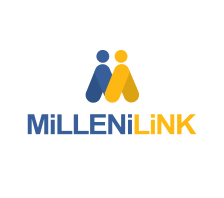Tech Career Insights: Spotlight on Data Science
Tech Career Insights: Spotlight on Data Science
We spoke with Data Scientist, Thiago Tanure Andozia, to gain insight into the world of data science and his experience in a skill set with such high demand in the marketplace.
Thiago shares his experience with interviewing, his career progression, and what he looks for in an employer. Whether you’re hiring for data science skills, or working in data yourself, Thiago’s perspective sheds light on this in-demand area of tech and highlights how employers can appeal to highly skilled data workers.
Thiago, you’re originally from Brazil, what brought you to Canada?
In my experience, data science is more valued in North America than South America, so I felt my career options would be wider if I moved to Canada. As well, I learned English before leaving Brazil, and I’ve found that once you’ve worked for a company that speaks a different language it makes you more visible to recruiters and provides that assurance that you really know the language. There are improved career growth opportunities when speaking English and working for a North American company.
You started out in Management Information Systems (MIS), how did you get into the world of Data Science?
I started as a Junior Data Analyst in 2011. As my skills matured and I became more senior in the data analysis field, I saw that I would be limiting myself if I didn’t diversify my experience in another direction. All data related jobs include data analysis as a foundation. For example, I would say about 80% of what I do as a Data Scientist is similar to what I did as a Data Analyst, such as assuring the quality of incoming data to be trustworthy and usable.
Data science was the next step for me – I’d learned enough about data analysis to be able to expand and build on this experience and start working more deeply in the subject with machine learning models, probabilities, linear algebra, etc. Most organizations have collected years of data at this point, and now it’s about quality, integrity, and utilization through the craft of data science.
What do you do today as a Data Scientist in your current position? How does it fit into a Company’s larger strategy?
Today I’m responsible for one large project that will be live in a year, roughly. Data science work looks for patterns in data that will guide direction and decision-making. Working in the insurance industry this could be price optimization or trying to establish correct machine learning assumptions. For example, if someone gets a new car and changes their address or anything that will impact the insurance price, our goal is to ensure the machine learning model understands and generates the best price based on the various data inputs and data models.
When it comes to strategy, more and more companies need to rely on data science work because it is incredibly efficient. In my career, I’ve seen companies taking tons of time and data to get the same results we can achieve with a machine learning model using only half the amount of data. In our industry, it’s not necessarily about beating out other insurance companies, but about utilizing our data resources so clients have assurance that we are giving them the best service with the most accuracy and ease.
Skills in all areas of data are valuable and in demand. How did that impact your job prospects when you came to Canada? How have you found the market in terms of demand for your skills?
The first difference I noticed when I came to Canada was the methodology for interviews. I was a manager in Brazil and used to conducting interviews; a candidate would speak to HR, then meet with a senior data manager, then undergo a technical interview with a coding test, etc. If they passed, they’d get hired.
In Canada, all managers I interviewed with were more concerned with my understanding of the theory of machine learning. Any coding language you’re writing, you can find answers online, by just Googling ‘how to do X in Python’, for example. But questions like ‘why are you using that code’, ‘how are you coding’, ‘why are you using a particular machine learning model’, etc., qualify your expertise much more deeply. As you gather more and more data the theory becomes more important. Once you start running tests and code, if you use the wrong technique, you’re investing time in the wrong direction. You need to understand the techniques and tools you’re using and ensure they’re addressing the roots of any issues.
There is a shortage in skills like Cybersecurity, Cloud, and AI and Data Science, and companies want to know how to attract and retain highly skilled employees. What keeps you at your current company?
I always think about what I can contribute to an organization. It’s relatively easy for someone seeking a promotion to talk themselves into a higher position, but that promotion brings more accountability and once you’re there it’s stressful and hard to handle if you’re not fully prepared and qualified. My employer tests you a lot before you grow with the company, so you’re never overwhelmed with new responsibilities, and you can maintain balance in your life.
Did you know about this prior to joining the company?
Well, they explained how the company worked, but I don’t think it's possible to know a culture fully before you start. Companies can be misleading in trying to attract employees, but once you start you can see the effort managers take to make you stronger for future positions. My organization provides weekly touch points to discuss your career, and a monthly meeting solely to talk about development, goals and how to achieve them, your prospects for growth, etc.
There’s also an ownership mentality and culture. Every time there’s a change in the economy, a global catastrophe, etc., we’ll see an email from the CEO explaining the company’s actions and response. For me this brings greater perspective to what I’m working on. I can align what I’m delivering with the company’s actions and ensure I’m accurate and taking any opportunity for improvement.
Everyone is debating the merits of remote vs. in-office work, and it’s a major factor for hiring. Do you have a preference? Does it make a difference for collaboration in the world of data science?
Personally, I’m fine with working remotely but I like working in-office, I always have. I think working in the company environment, and having people see you helps you grow. Even if you’re struggling with something, you have an opportunity to show your process and how you resolve issues.
With tech work, people tend to assume that remote is fine. There are advantages and disadvantages to both, of course, working remotely lets you live in a cheaper city, saves you time commuting, etc. But even though it’s possible to be remote, there can be higher quality of output to be in office. I currently work in-office one day a week and it helps me solve problems and build relationships – there’s a different bond with people when you’ve worked through problems together. It is true that everything can be done remotely, but bonding is important. Human beings are not meant to live digitally, we’re meant to be together, social – we get energy from each other. Human connection is life. The fact is, if you have friends at work, it is more likely to keep you at the company.
It’s always been acknowledged that ‘people don’t leave a bad job, they leave a bad boss’, but you’re right, having friends at work makes a difference to feeling like you’re part of a community rather than just working a job.
Dealing with the skills shortage, many companies are focused on hiring more senior people to fill the gaps. What have your interviewing experiences been like? Are companies asking the right questions?
I generally found the lines of questioning to be good – a lot of theory as I mentioned before. However, one thing I’ve noticed is that some companies aren’t interested in your background other than how it relates to the specific position you’re interviewing for.
For example, in my case I’ve learned a lot about data analysis that can be applied to data science, but if interviewers only ask about data science, they lose a lot of important background information. My approach has changed because of the diversity of my skills and background.
That’s a great point. Do you feel like you have other important skills that interviewers may fail to notice by being limiting in their questioning?
I spent a lot of time working with children in my church and I learned a lot about communication by working with children. But not all employers want to talk about these kinds of things in an interview. I found that having discussions with children taught me to be a faster thinker and better at simplifying concepts. Kids don’t always get what you’re saying so you need to learn techniques to explain things ten different ways to make your point land. This has been helpful for me when talking to non-tech people about technical concepts. I need to convey the information correctly, and if they don’t understand, I need to be able to quickly pivot and take a different approach. This isn’t a skill you learn in college and training programs, especially when everyone around you understands things in a similar way. Employers are missing out on a lot of qualifying information when they don’t take other life experiences and skills into account.
Are you struggling to build your team with highly skilled data experts? Are you a data worker considering your next opportunity? Millenilink specializes in thoughtful placements that provide the best value to both the company and the job seeker. Get in touch at info@millenilink.ca.


